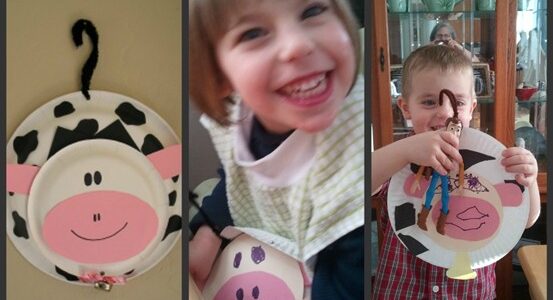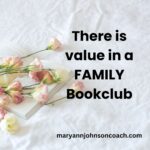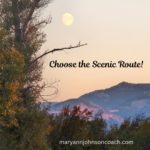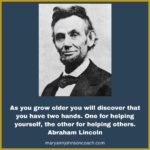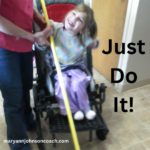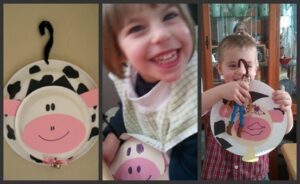 When I first began writing and publishing articles, it was in 2010. My grands, the ones I still live with, were all under five. As their grandma, I wanted to find ways to play and connect. I’m not a board game person! Tea parties and dress up are not on my list of fun things! The truth is, I like learning. I always have. I thought a lot about how I could ‘play’ with my grands and make it work for all of us. What I came up with was learning for fun. Every Tuesday, for several years, we would gather and play/learn. They looked forward to it and occasionally would tell me what they wanted to know or ask about our next Tuesday session. It was a hit and was called Grandma School. : )
When I first began writing and publishing articles, it was in 2010. My grands, the ones I still live with, were all under five. As their grandma, I wanted to find ways to play and connect. I’m not a board game person! Tea parties and dress up are not on my list of fun things! The truth is, I like learning. I always have. I thought a lot about how I could ‘play’ with my grands and make it work for all of us. What I came up with was learning for fun. Every Tuesday, for several years, we would gather and play/learn. They looked forward to it and occasionally would tell me what they wanted to know or ask about our next Tuesday session. It was a hit and was called Grandma School. : )
I’ve been moving articles from my old site to this new home for nine years, come May 2025. Why has it taken so long? Well, I always have new experiences and lessons to share. And I had over 600 articles on the old site. That’s a lot of rewriting. : ) Not everything applies or will be shared here, but there are fun things on that old site, especially when it comes to learning with kids and making it fun.
So, over the summer, I’m going to share many of the cool lessons I taught my grands and the tools I used to do it. If you have kids under eleven or twelve, it will give you summer fodder to keep them occupied and entertained while they learn and help chase away summer boredom. It will also help you move them from technology to imagination, a very good thing to do now and then.
Another Idea
If this is a family activity, then those over twelve can help those under twelve. You’ll be surprised how involved they get when they are doing the teaching. If all your kids are over twelve, then share these cool articles with someone in your neighborhood or family who has younger children or grands. At the bottom of this article are great resources for extended learning and learning for your older children. You’ll be amazed at the possibilities.
Using this ‘learning play’ with my grands created FUN times and built terrific memories. Enjoy, as I roll them out again.
LET’S BEGIN WITH COWS
The study of mammals is called mammalogy. This is a branch of zoology, which is the study of animals. One Tuesday, we studied a mammal – cows.
Jack’s first question on this Tuesday was, “What are we going to learn today, Grandma?” So, we played a guessing game to see if they could figure it out. When I finally said, “We’re going to learn about cows today,” Jack yelled, “Woo-hoo, Cows!” Kids are soooo easy to please.
As usual, we started with books about cows. We didn’t actually read the books, but we talked about the pictures and I told them fun cow facts, such as, “Did you know a cow has four stomachs. You only have one, but a cow has four!!” That type of comment is usually followed by a question such as “Why Grandma?” Then we get to learn a bit more. Jack’s favorite cow fact was: “Daddy cows are called bulls and they go Moo really, really loud.” I did such a great daddy cow impersonation that it sent Jack into gales of laughter.
the pictures and I told them fun cow facts, such as, “Did you know a cow has four stomachs. You only have one, but a cow has four!!” That type of comment is usually followed by a question such as “Why Grandma?” Then we get to learn a bit more. Jack’s favorite cow fact was: “Daddy cows are called bulls and they go Moo really, really loud.” I did such a great daddy cow impersonation that it sent Jack into gales of laughter.
Books About Cows
I know that many people have stopped using libraries, but I still do, and that’s where our great books came from. You can find stories, pictures, and facts online, but kids like holding books and looking at the pictures. So, in case you want to take a short trip to the library, here is a list of great books. They will give you lots of cool facts to share, and they have fun pictures.
• Cows in the Parlor: A Visit to the Dairy Farm by Cynthia McFarland
• My Cows by Heather Miller
• Milk: From Cow to Carton by Aliki
• Cows on the Farm by Mari C. Schuh
• Life on a Cattle Farm By Judy Wolfman
• Cattle Kids: A Year on the Western Range, Cat Urbigkit
• Cows, by Rachael Bell
A Cow Activity
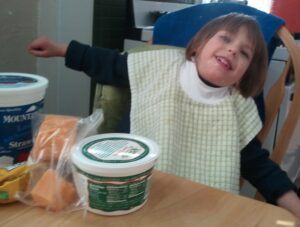 After the books, we did a cow activity. I had created a picture sheet on my computer that showed cool foods that are made from cow’s milk: cheese, cream, ice cream, milk for cereal, cottage cheese, sour cream, etc. I also had the real item on the table, if we had it. We looked at the pictures, talked about each item, and then tasted it. Of course, we all liked the cookie dough best. (It has milk in it!)
After the books, we did a cow activity. I had created a picture sheet on my computer that showed cool foods that are made from cow’s milk: cheese, cream, ice cream, milk for cereal, cottage cheese, sour cream, etc. I also had the real item on the table, if we had it. We looked at the pictures, talked about each item, and then tasted it. Of course, we all liked the cookie dough best. (It has milk in it!)
A Cow Game
We created a fun game by cutting two copies of the food sheet into separate pictures. Then we played Memory. The kids enjoyed it so much that they played it with their mom and dad later.
A Cow Craft
We made cow door hangers, a very simple project, that I am sure you can figure out how to do from looking at the picture. But just in case you want directions or your older children want to make a talking cow, click here.
We had the most fun learning to use scissors. This was new for the kids. Jack tried it the traditional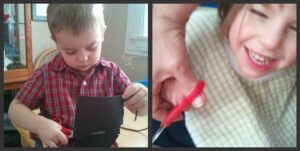 way, but then switched to using two hands and having me hold and turn the paper. Special scissors with 4 finger holes allowed me to help Maggie cut her own cow spots. She was thrilled. (Remember, Maggie, who is now eighteen, has severe cerebral palsy, so doing anything with help thrilled her and still does.)
way, but then switched to using two hands and having me hold and turn the paper. Special scissors with 4 finger holes allowed me to help Maggie cut her own cow spots. She was thrilled. (Remember, Maggie, who is now eighteen, has severe cerebral palsy, so doing anything with help thrilled her and still does.)
If I am missing an item, I don’t run to the store. I make do. Simple is what made these types of play dates doable for me, then and now. We had large paper plates, but cut the smaller circle from tagboard. We had skinny chenille stems, so our tails weren’t as fluffy as the model cow’s, but no one noticed. We didn’t have any little bells lying around, so we cut them out of paper. I think our cow door hanger craft turned out every bit as lovely as the one on the web!
A Cooking Activity
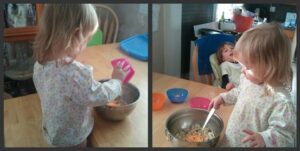 We ended the day by making mac and cheese. Cooking was a favorite activity, so everyone helped. The kids liked tasting the powdered cheese. We had our mac and cheese for lunch, and it was delicious. Maggie, Jack, and Mary decided that having cows in our world is a very good thing.
We ended the day by making mac and cheese. Cooking was a favorite activity, so everyone helped. The kids liked tasting the powdered cheese. We had our mac and cheese for lunch, and it was delicious. Maggie, Jack, and Mary decided that having cows in our world is a very good thing.
Extend The Learning
While we ate our mac and cheese, I read a silly story called The Cow Loves Cookies by Karma Wilson and Marcellus Hall. If you want to extend your ‘cow learning’, then explore some of these other resources – easy readers and chapter books.
• Sixteen Cows by Lisa Wheeler
• The Story of Ferdinand by Munroe Leaf
• Kiss the Cow! by Phyllis Root and Will Hillenbrand
• Counting Cows by Michelle Medlock Adams and Mark Meyers
• The Cow That Went OINK by Bernard Most
• Donna O’Neeshuck Was Chased by Some Cows by Bill Grossman and Sue Truesdell
• George Washington’s Cows by David Small
• Moonstruck: The True Story of the Cow Who Jumped Over the Moon by Gennifer Choldenko
• The Smallest Cow in the World (I Can Read Book 3) by Katherine Paterson and Jane Clark Brown
• The Blue Cow (Sugar Creek Gang Series) by Paul Hutchens
• The Cow in the House: Level 1 (Easy-to-Read, Puffin) by Harriet Ziefert and Emily Bolam
• Mrs. Wow Never Wanted a Cow (Beginner Books) by Martha Freeman and Steven Salerno
Learning for OLDER Children
You can expand your study of cows and let it take you in new directions. These books would engage older children in learning about cows.
Cow books about math:
• Whole-y Cow: Fractions Are Fun by Taryn Souders and Tatjiana Mai-Wyss
Cow books about giving:
• 14 Cows for America by Carmen Agra Deedy. The true story of a gift from a village in Kenya to the USA after 9/11.
Cow tales from other countries:
• The Silver Cow: A Welsh Tale by Susan Cooper and Warwick Hutton
• Hamish the Highland Cow by Natalie Russell
• The Cow-Tail Switch: And Other West African Stories by Harold Courlander, George Herzog and Madye Lee Chastain
Cows in history:
• Dadblamed Union Army Cow by Susan Fletcher. The story about a cow that marched (clopped?) in the Civil War with the Fifty-Ninth Regiment of Indiana Volunteers, giving milk to the soldiers. Go here for facts about this book.
Cows in Art:
• Learn to Draw Farm Animals: Step-by-step instructions by Jickie Torres and Robbin Cuddy
• The Blue Rider: The Yellow Cow Sees the World in Blue (Adventures in Art) by Doris Kutschbach
Cows and English:
• Herd of Cows, Flock of Sheep: Adventures in Collective Nouns (Language Adventures Book) by Rick Walton and Julie Olson
Cows and a girl with Autism:
• Temple Grandin: How the Girl Who Loved Cows Embraced Autism and Changed the World by Sy Montgomery and Temple Grandin
Books about cows that aren’t even cows:
• Sam the Sea Cow (Reading Rainbow Books) by Francine Jacobs and Laura Kelly
• Sea Cows, Shamans, and Scurvy: Alaska’s First Naturalist: Georg Wilhelm Steller by Ann Arnold
Information about cows for kids.

